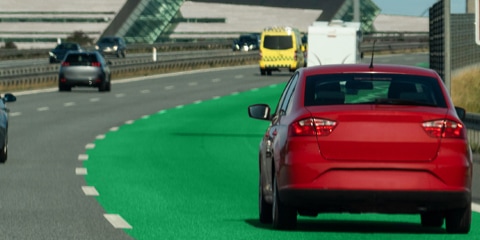All vehicles operate most efficiently when driven at a constant pace, whether they are hybrid, combustion, or battery-powered. While electric automobiles can regenerate power when braking, heavy acceleration consumes a significant amount of fuel and electricity. However, even driving at a steady speed on a motorway can quickly deplete the range of your electric car if approached incorrectly. So, the key to saving battery energy when driving your EV is to tread lightly on the right foot.
Using an EV on a motorway
Any trip on a UK motorway quickly demonstrates how many people believe that the 70 mph speed limit is a reasonable speed to travel at. Anecdotally, however, it appears that more drivers are now adhering to the speed limit on motorways, and speeds are decreasing, possibly due to the widespread use of speed cameras and a focus on fuel economy.
It all comes down to aerodynamics: the more quickly you drive, the more wind resistance, also known as aerodynamic drag, opposes you. Furthermore, drag grows dramatically at high speeds.
The advertised range of an EV battery may be achieved if you maintain a constant speed of 70 mph on a motorway. However, if you drive at 75 mph instead, your electric car’s range may decrease by five to ten percent. At 80 mph, the range is roughly 10 to 15 percent lower than at 70 mph.
It’s not surprising therefore, that cruising at lower speeds can result in significant efficiency gains. You’ll notice a noticeable increase in range at a constant 60 mph, and you might be surprised at how little the journey’s duration is affected. Nevertheless, driving at 60 mph in the motorway’s inside lane while dodging 32-ton trucks can be intimidating!
Is speed really so important?
Like any other vehicle, how you drive affects how far you can travel before ‘filling up.’ Electric cars, due to their increased efficiency, outperform conventional vehicles in urban settings, but on motorways, the playing field is more even.
Thus, speed does matter. Driving at 70 mph or less on the motorway will help to maximise the range of the vehicle. On a lengthy trip, reducing your speed may also mean fewer pauses for charging. So maybe this is a story where the tortoise triumphs over the hare…



